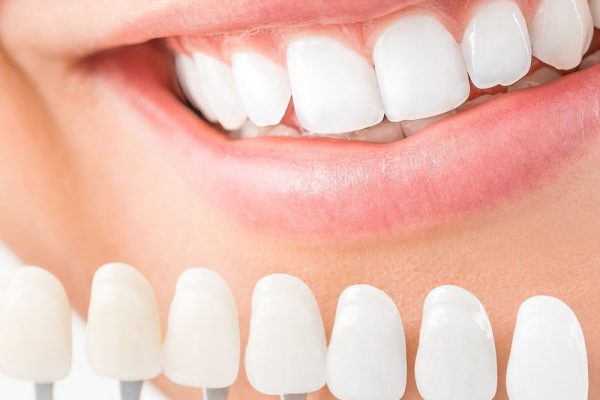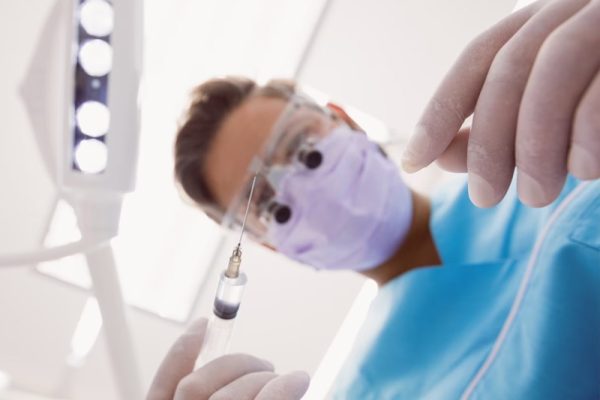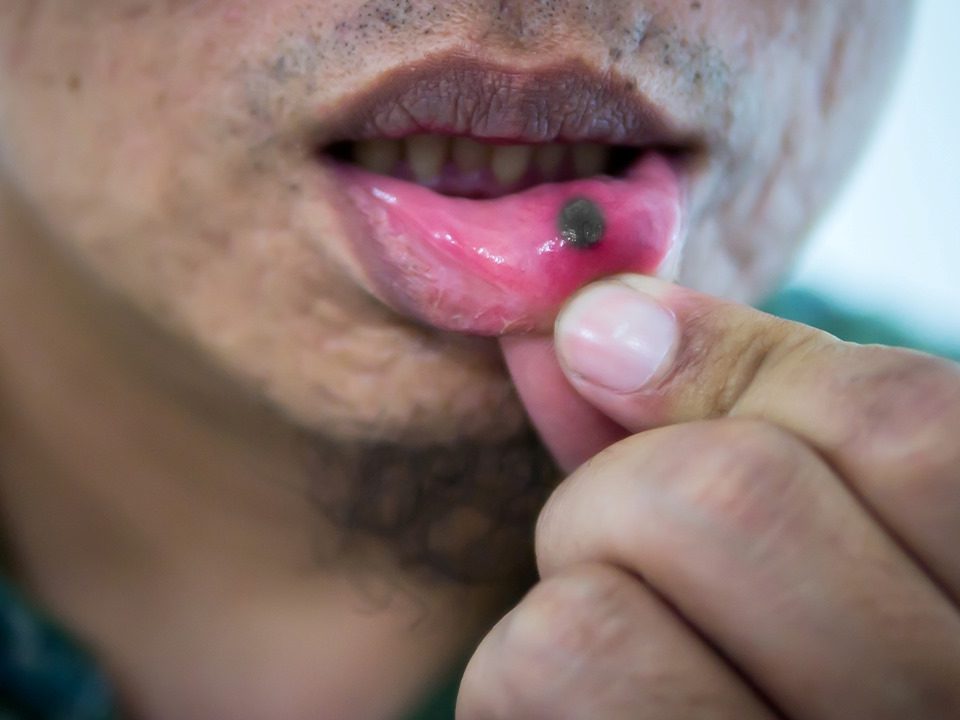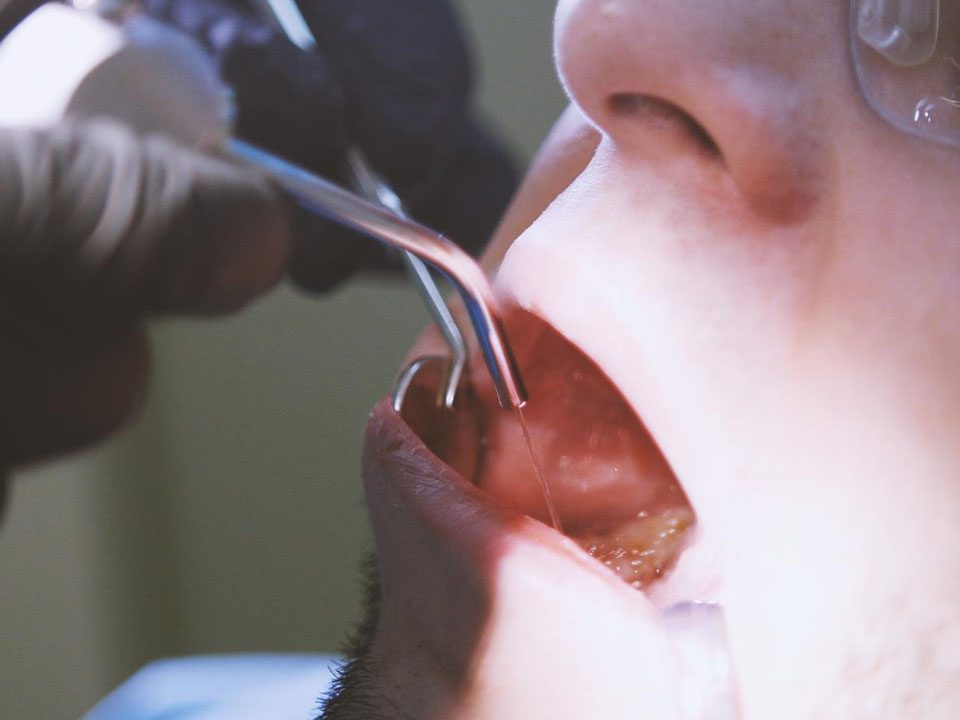
What Type of Biopsy is Used for Oral Cancer?
September 18, 2023
What is the Failure Rate of All-on-4 Dental Implants?
October 4, 2023Many people worry about venous lakes, which are small, bluish, benign vascular lesions that might occur on the lips or ears. Despite their superficial resemblance to bruises and blood blisters, they are something very different. This article will talk about venous lake swelling in Phoenix, Arizona, and tackle whether or not venous lakes can get bigger over time.
Do Venous Lakes Get Bigger?
In Phoenix, Arizona, venous lakes can get bigger over time; this is a fact. Although venous lakes are slow-growing vascular lesions with a variable expansion rate, they are important to be aware of. It’s vital to remember that venous lake swelling rarely happens or contracts suddenly.
Multiple variables affect how quickly or slowly venous lake swelling happens over time:
- Age. In addition to increasing frequency and size with age, venous lakes mostly affect the elderly. The affected area’s blood arteries may gradually dilate over time.
- Sun Exposure. Sunlight’s ultraviolet (UV) rays can promote the growth and development of venous lakes if exposed to them for extended periods. Injuries to the blood vessels from the sun might cause the vessel walls to become more fragile and dilated.
- Genetics. Inheritance may play a role in the formation of venous lakes. These lesions may run in families, making some people more susceptible to them than others.
- Genetics. Changes in hormone levels, such as those experienced during pregnancy or menopause, have been shown to compromise blood vessel function and, in turn, promote the development of venous lakes.
- Trauma. A venous lake swelling may happen if the area is injured or harmed. The blood vessels that have been damaged may swell and expand as a result of the trauma.
- Hormonal Changes. Venous lakes can change in size and appearance due to alterations in blood pressure, such as hypertension (high blood pressure). The walls of blood vessels are already under strain, and high blood pressure might increase that.
- Inflammation. Venous lakes may swell momentarily due to localized inflammation or irritation of the blood vessels.
Can Venous Lake Swell?
Although inflammation can cause localized venous lake swelling, they do not enlarge like a pimple or wound might. They usually stay the same size and shape, but variations in blood flow, pressure, or the properties of the tissues around them might make them appear larger or smaller than they are.
Why Does My Venous Lake Swell?
On their own, venous lake swelling rarely happens noticeably. Dilated blood vessels form stable, slowly expanding vascular lesions. However, a few things might momentarily alter their appearance and make it look like they are growing or shrinking.
Some of these factors affecting venous lake swelling in Phoenix, Arizona, could be:
- Blood Flow. The visibility of a venous lake may change depending on the blood pressure. The venous lake might stand out more if blood circulation to the area is increased, as it would be during vigorous exercise or when blood pressure is high.
- External Pressure. Vein lakes can temporarily change appearance when pressure is applied to the area, as in close physical contact or when wearing tight garments. The size of the lesion may normalize if the pressure is removed.
- Inflammation. Inflammation and irritation of the venous lakes might occur on rare occasions. The area around the venous lake could look bloated or red if inflammation is present. This occurrence is unusual yet possible.
- Positional Changes. The size of the venous lake may alter due to your body’s position. If you are lying down, for instance, blood may pool there, increasing the appearance of the lesion.
- Other Medical Conditions. Vein problems, like vascular diseases, can cause cosmetic changes like venous lakes. The venous lake may fluctuate more noticeably under certain conditions.
Can Venous Lakes Be Removed?
As mentioned, venous lake swelling is rather common. Although they are typically not dangerous, some people may opt to have venous lakes removed for aesthetic reasons or if their size or look is causing them discomfort. Developing a venous lake is a common motivating factor for surgical excision. Venous lakes can be treated with various medical techniques, including laser therapy, cryotherapy, surgical excision, etc.
Consultation with a medical professional or dermatologist is recommended to determine the best course of action, as this will depend on aspects such as the lesion’s location, size, and the patient’s personal preferences. In conclusion, venous lakes can be drained, but whether or not to do so depends on each case.
Is a Venous Lake Hard?
No, a venous lake is not typically hard. It’s a soft, compressible lesion often found on the skin, particularly on sun-exposed areas like the lips or ears. The soft nature of a venous lake is due to its composition; it’s essentially a pool of blood within a dilated blood vessel or a cluster of vessels. This characteristic can help differentiate it from other skin lesions that might be firmer to the touch.
Are Venous Lakes Permanent?
Venous lakes are generally considered to be permanent once they appear. They don’t typically resolve independently and may persist indefinitely unless treated. However, treatments, such as laser therapy, are available, which can effectively remove these lesions if desired. The decision to treat a venous lake often depends on cosmetic concerns or if the lesion is causing discomfort.
Are Venous Lakes Common?
Venous lakes are relatively common, especially among older adults. They tend to develop more frequently in people over the age of 50 and are often associated with long-term sun exposure. As a result, they are more frequently observed in areas with a sunny climate and in individuals with outdoor lifestyles. Their prevalence increases with age, making them a common dermatological finding in the elderly population.
How Serious Is Venous Lake?
A venous lake is generally not considered a serious medical condition. It’s a benign vascular lesion, meaning it’s non-cancerous and typically doesn’t pose a threat to health. However, because its appearance can sometimes resemble malignant lesions, such as melanoma, a healthcare professional must evaluate any new or changing skin lesions. In most cases, venous lakes are of cosmetic concern rather than a serious health issue.
How Do You Shrink a Venous Lake on Your Lip?
If you have a venous lake swelling on your lip, a dermatologist or other medical specialist can help you reduce its size. Depending on the size and location of the lesion, they may suggest therapies such as laser therapy, cryotherapy, or sclerotherapy. It is not recommended to treat yourself; instead, seek the assistance of a trained specialist.
Best Venous Lake Removal Services in Phoenix, Arizona
At Atrium Dentistry in Phoenix, Arizona, you can get first-rate assistance with Venous Lake. To help you feel good in your skin again, our local team of professionals offers safe and individualized treatments. Contact us today for a consultation in Phoenix and discover the key to radiant, flawless skin.
Conclusion
In summary, venous lakes, the bluish lumps that can develop on the lips and elsewhere on the body, tend to get bigger over time. Consistent sun exposure, becoming older, and not getting treatment are all risk factors for their progression. It’s important to remember that venous lakes are usually harmless and respond well to medical procedures like laser therapy, cryotherapy, or excision.
FAQs
Are venous lakes painful?
In most cases, venous lakes cause little discomfort and are more of an aesthetic issue than a serious health risk.
Can I prevent the development of venous lakes?
You can’t always avoid getting them, but you can lessen your chances by covering up and using sunscreen.
Are venous lakes dangerous?
Despite the lack of danger associated with most venous lakes, it is important to have them checked out by a doctor just to be safe.
Do venous lakes go away on their own?
Most venous lakes don’t go away on their own. In most cases, they need to be treated medically.
Is there a risk of complications during venous lake treatment?
Although complications are uncommon, selecting a competent medical professional to carry out the treatment is important.







